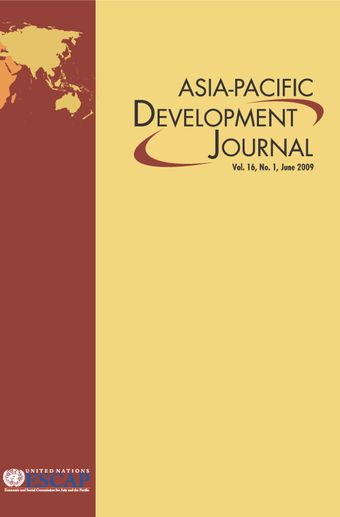-
Public health, urban governance and the poor in Bangladesh: Policy and practice
- Source: Asia-Pacific Development Journal, Volume 16, Issue 1, Mar 2013, p. 27 - 58
-
- 08 Mar 2013
Abstract
As is the case elsewhere in Asia, urbanization is growing at a rapid pace in Bangladesh. With the increased urbanization, the basic amenities of life are not expanding for the urbanites. Rather, the increased populations have been exerting continuous pressure on the existing limited facilities. The poor, who constitute a large portion (45 per cent) of the urban population, are the principal victims of this predicament and are significantly disadvantaged in access to basic services, particularly public health services. Urban governance has yet to be efficient enough to deal with this urgent issue. The country still lacks adequate policy direction for urban public health and the management of existing services is also quite inefficient. This paper attempts to identify the weaknesses of urban governance that result in the poor having inadequate access to public and primary health services by reviewing the existing policies and institutional arrangements for the provision of services and by examining the extent to which they are put into practice in terms of ensuring access to these services for the urban poor. Thus the study seeks to identify the inadequacies of the policies and practices contributing to the lack of primary and public health services for the urban poor. It draws on the findings of an empirical study conducted in four slums of the capital city of Bangladesh.
© United Nations





